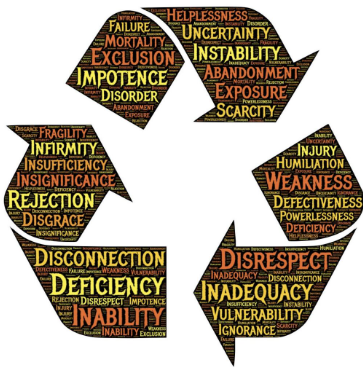Breaking the Blame Cycle
In the grand tapestry of human experience, one thread often tangles our progress and peace: the tendency to point fingers. Whether in boardrooms, classrooms, or living rooms, we’ve all witnessed — and perhaps even participated in — the age-old tradition of blaming others for our own shortcomings, missteps, and outright failures. It’s an almost instinctual reaction for some, a psychological shield erected against the discomfort of responsibility. Yet, while it may offer fleeting solace, the blame game is a destructive loop, trapping individuals in stagnation and poisoning relationships.
This article delves deep into the psychology behind blaming others, explores its profound impact, and, most importantly, offers a practical guide to breaking free from this debilitating habit. By understanding why we do it and how to cultivate a mindset of accountability, we can unlock unprecedented personal growth and genuine success.
The Subtle Psychology of Blame: Why We Point Fingers
At its core, blaming others is often a sophisticated defense mechanism. It’s a shield for the ego, a way to protect our self-esteem from the perceived sting of inadequacy or failure. No one enjoys feeling incompetent, and admitting a mistake can feel like an assault on our very identity.
Several psychological principles contribute to this inclination:
- Self-Serving Bias: This cognitive bias leads us to attribute positive events to our own character or actions (e.g., “I succeeded because I’m smart and worked hard”) and negative events to external factors (e.g., “I failed because the conditions were unfair or someone else messed up”). It’s a natural inclination to see ourselves in the best possible light.
- Fundamental Attribution Error: While we attribute our own failures to external circumstances, we often do the opposite for others. We tend to attribute their failures to their internal characteristics (e.g., “They failed because they’re lazy or incapable”) rather than considering situational factors. This disparity makes it easier to shift blame.
- Fear of Judgment and Shame: Society often valorizes success and shuns failure. The fear of being judged, ridiculed, or seen as less capable can be a powerful motivator to deflect blame. Shifting the spotlight means avoiding personal shame.
- Lack of Self-Awareness: Some individuals genuinely struggle to connect their actions to outcomes. They might lack the introspection necessary to see their role in a situation, genuinely believing that external forces are solely responsible.
- Perceived Loss of Control: When things go wrong, blaming someone or something else can give a false sense of control. If it wasn’t my fault, then perhaps I couldn’t have prevented it, thus alleviating the pressure to have been perfect or to do better next time.
These psychological underpinnings explain why blaming is such a common human tendency. It’s a convenient, though ultimately self-defeating, way to navigate discomfort.
Breaking the Blame Cycle
The Destructive Ripple Effect: How Blame Undermines Everything
While blaming might offer momentary relief, its long-term effects are profoundly damaging, creating a vicious cycle that stunts personal, professional, and relational growth.
- Stifles Personal Growth: The most significant casualty of the blame game is personal growth. If you always attribute failure to external factors, you never learn from your mistakes. There’s no incentive to analyze your actions, identify areas for improvement, or adapt your strategies. Each setback becomes just another “proof” that the world is against you, rather than a valuable lesson.
- Erodes Trust and Damages Relationships: Imagine a team where no one takes responsibility, or a relationship where one partner always blames the other. Trust quickly disintegrates. Blame fosters resentment, defensiveness, and ultimately, distance. Healthy relationships – whether personal or professional – are built on a foundation of mutual respect and shared accountability.
- Fosters a Victim Mentality: Constantly blaming others cultivates a victim mentality. This mindset asserts that you are powerless, at the mercy of external forces, and incapable of influencing your own destiny. It’s an incredibly disempowering position that leads to passivity and a lack of initiative. Why try if everything is rigged against you anyway?
- Prevents Effective Problem-Solving: When the focus is on who is at fault rather than what went wrong and how to fix it, problem-solving becomes impossible. Energy is wasted on recrimination instead of constructive analysis and action. Issues fester, and opportunities for improvement are missed.
- Diminishes Reputation and Credibility: In any sphere, individuals who consistently blame others are quickly seen as unreliable, immature, and difficult to work with. Their credibility is undermined, and they may be passed over for opportunities that require leadership, responsibility, and problem-solving skills.
Breaking the Blame Cycle
Breaking the Blame Habit: A Path to Accountability and Empowerment
The good news is that the habit of blaming is precisely that: a habit. And like any habit, it can be unlearned and replaced with more constructive behaviors. Cultivating personal accountability is a journey, but one that promises immense rewards in self-respect, stronger relationships, and genuine achievement.
Here are concrete steps to break free from the blame cycle:
1. Cultivate Radical Self-Awareness
The first step is to become acutely aware of when and why you are tempted to blame.
- Observe Your Thoughts: Pay attention to the internal narrative when something goes wrong. Do you immediately think, “Whose fault is this?” or “What went wrong?”
- Identify Your Triggers: When do you tend to blame most often? Is it under pressure? When you feel criticized? Recognizing your triggers can help you intercept the blame reflex.
- Journaling: Regularly reflect on your experiences. When a failure occurs, instead of immediately looking outward, ask yourself: “What was my role in this outcome? What could I have done differently?”
2. Embrace Your Role: The Power of “I” Statements
Shift your language from accusatory “you” or “they” statements to “I” statements that reflect ownership.
- Instead of: “You didn’t give me clear instructions, so I messed up.”
- Try: “I struggled with the instructions; next time, I will ask for clarification before starting.”
- Instead of: “The market crashed; it’s why my business failed.”
- Try: “My business failed, and while the market was challenging, I need to review my contingency planning and risk management strategies.”
This subtle shift in language reinforces your agency and opens the door to learning.
3. View Failure as a Feedback Mechanism
Successful individuals don’t avoid failure; they embrace it as an invaluable source of information.
- Decouple Failure from Identity: Understand that a single failure does not define your worth or capabilities. It’s an event, not an identity.
- Analyze, Don’t Agonize: When something doesn’t go as planned, conduct a post-mortem. What were the contributing factors? What could be improved for next time? This transforms setbacks into stepping stones.
- Focus on Solutions, Not Problems: Once you’ve acknowledged your role, shift your energy from dwelling on the problem to generating solutions. “What can I do now to rectify this, or prevent it from happening again?”
4. Practice Empathy and Perspective-Taking
Understanding that everyone operates within their own set of challenges and perspectives can reduce the impulse to blame.
- Walk in Their Shoes: Before assigning blame, consider the other person’s context, pressures, and intentions. Could there be a misunderstanding? Were they facing their own challenges?
- Assume Positive Intent: While not always applicable, starting with the assumption that others generally have good intentions can lead to more constructive dialogues.
5. Cultivate a Growth Mindset
Developed by Carol Dweck, the concept of a growth mindset is foundational to accountability.
- Fixed Mindset: Believes abilities are static, leading to avoidance of challenges and defensiveness about mistakes.
- Growth Mindset: Believes abilities can be developed through dedication and hard work, viewing challenges as opportunities and failures as learning experiences.
- Actively work on seeing your intelligence, talents, and character as qualities that can be developed and improved. This makes taking responsibility for setbacks far less threatening.
6. Seek and Embrace Constructive Feedback
Feedback, even critical feedback, is a gift. It’s an external perspective that can reveal blind spots.
- Actively Request Feedback: Ask trusted colleagues, friends, or mentors for honest opinions on your performance and interactions.
- Listen to Understand, Not to Defend: When receiving feedback, resist the urge to interrupt or explain away your actions. Listen actively, ask clarifying questions, and reflect on what’s being said.
7. Develop Resilience
Life will inevitably throw curveballs. Resilience is the ability to bounce back from adversity.
- Build a Support System: Surround yourself with people who encourage accountability and growth, not those who enable blame.
- Practice Self-Compassion: Be kind to yourself when you make mistakes. Acknowledge the difficulty without wallowing in self-pity. This allows you to move forward more quickly.
Breaking the Blame Cycle
The Liberating Power of Accountability
Breaking the blame cycle is not easy. It requires courage, humility, and consistent effort. It means confronting discomfort and stepping into the arena of self-responsibility. However, the rewards are immeasurable.
When you stop blaming others, you reclaim your power. You transition from being a passive victim of circumstances to an active architect of your own life. You become a more effective problem-solver, a more trustworthy colleague, a stronger partner, and, most importantly, a more confident and resilient individual.
The journey from blame to accountability is a profound act of self-empowerment. It’s an invitation to stop asking “Whose fault is it?” and start asking “What can I learn, and what can I do next?” This shift in perspective is not just a minor adjustment; it’s a fundamental recalibration that can transform your entire life. Embrace accountability, and watch as your capacity for growth, success, and genuine happiness expands exponentially.



